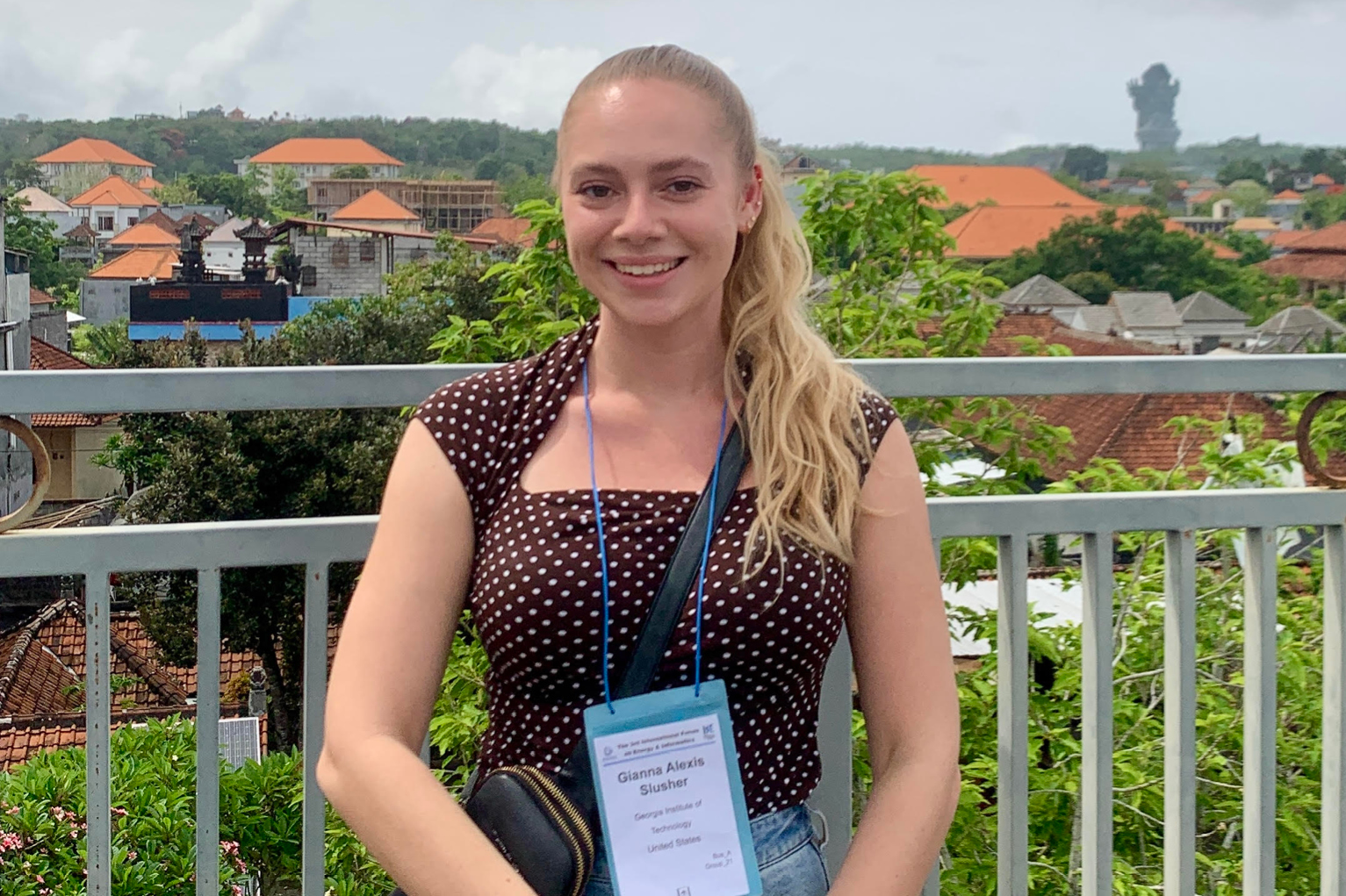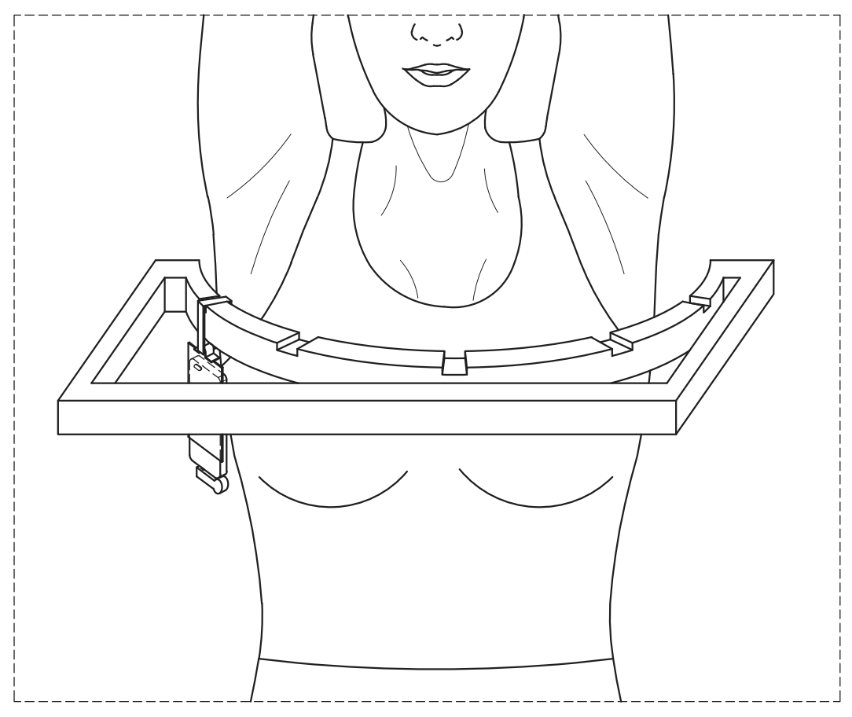
Ph.D. Student Receives Patent for Thermographic Breast Cancer Detection Device
July 19, 2024
By Mikey Fuller
Mammograms can be an effective resource for detecting breast cancer, but for some women, it can be an invasive and uncomfortable experience.
That’s why Gianna Slusher, Ph.D. student in the George W. Woodruff School of Mechanical Engineering, developed a device that could serve as an effective alternative to traditional early detection methods for breast cancer.
Slusher and her partner, Caitlin Reina, received an official patent for inventing a mounted thermographic imaging system that can be used at home to detect medical issues such as breast cancer.
The device includes a mount that can attach to a wall and a clamp that holds a smartphone or tablet. Through an app programmed by the pair, it uses thermal images as a non-invasive and radiation-free way to capture changes in breast temperature associated with cancerous tumors. The mount can be positioned in multiple discreet and various angles, which can allow for consistent imaging. The user would be instructed on the app to see a doctor if an anomaly is detected.

Slusher and Reina began working on the project at the Invention Factory – a summer program they attended at Cooper Union for the Advancement of Science and Art in New York City while the pair were working towards their bachelor's degrees in mechanical engineering.
Slusher hopes the thermal imaging system and ease of use can help women battle all types of breast cancer in the early stages from the convenience of their own home.
During the summer of the Invention Factory when the device was created, Slusher’s aunt was diagnosed with breast cancer, which Slusher says deeply influenced her work.“Her journey inspired the creation of this device, and I am pleased to share that she is now healthy!”
Now Slusher hopes the invention can help other women gain easier access to a solution to a problem that many women will face in their lifetime.
“As a woman in mechanical engineering, I have strived to use my education and research to contribute to efforts that benefit other women,” she says.
After graduating from Cooper Union, Slusher was inspired to continue her research at the Georgia Institute of Technology through the bioengineering Ph.D. program under the supervision of Andrei Fedorov, who serves as associate chair for graduate studies, professor, Rae S. and Frank H. Neely Chair, and Regents' Entrepreneur in the Woodruff School.
The patent was filed independently by Slusher and Reina. However, Slusher credits her advisor, Fedorov, as a significant source of support and inspiration when it comes to innovation and design throughout her research.
Fedorov says Slusher embodies the Georgia Tech motto of “Progress and Service,” and is grateful the graduate program can attract such brilliant and caring students.
“Becoming a lead inventor on a patented technology speaks volumes about the student’s thoughtfulness and ingenuity, as well as fearlessness of an innovator,” Fedorov says. “It takes not only the engineering talent and confidence in one’s ability to innovate and invent, but also the passion for helping others.”
The next stages of the invention involve refining the technology, conducting clinical trials if necessary, and ultimately bringing the innovation to market. Slusher hopes the patent gains recognition and interest from potential collaborators and investors.
Slusher continues to research cancer technologies in her Ph.D. studies, but at a micro-level, focusing on therapeutic cells and microfluidic device design and fabrication. She is designing and fabricating devices aimed at enabling rapid processing and analyses of cell therapies, thereby making this life-changing treatment more easily monitored, manufactured, affordable, and accessible to all.
Slusher is undecided on her plans after completing her Ph.D., but hopes to continue working in a capacity that allows her the freedom to research and design topics that inspire her, and where she can contribute meaningfully to advancements in her field.

